
Siouxsie and the Banshees were a British rock band formed in London in 1976 by vocalist Siouxsie Sioux and bass guitarist Steven Severin. They have been widely influential, both over their contemporaries and with later acts. The Times called the group "one of the most audacious and uncompromising musical adventurers of the post-punk era".
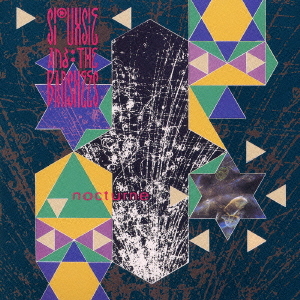
Nocturne is a live double album and video by English rock band Siouxsie and the Banshees, released on 25 November 1983 by Polydor Records. Co-produced by Mike Hedges, Nocturne features performances recorded at two shows at the Royal Albert Hall in London, on 30 September and 1 October 1983, featuring Robert Smith on guitar.

Susan Janet Ballion, known professionally as Siouxsie Sioux, is an English singer, songwriter, musician and record producer. She came to prominence as the leader and main lyricist of the rock band Siouxsie and the Banshees, who were active from 1976 to 1996. They released 11 studio albums, and had several UK Top 20 singles including "Hong Kong Garden", "Happy House" and "Peek-a-Boo", plus a US Top 25 single in the Billboard Hot 100, with "Kiss Them for Me".

The Glove was a 1983 English musical collaboration and recording project by the Cure's Robert Smith and Siouxsie and the Banshees' Steven Severin. They released one studio album, Blue Sunshine, in 1983 as part of Severin's solo deal with Polydor. The latter came up with the band name, the album title and the blue/yellow sleeve concept, as Smith had to leave the project before completion due to prior commitments with the Cure.

John Alexander McGeoch was a Scottish musician and songwriter. He is best known as the guitarist of the rock bands Magazine (1977–1980) and Siouxsie and the Banshees (1980–1982).

Peter Edward Clarke, known professionally as Budgie, is an English drummer best known for his work in Siouxsie and the Banshees. He is also the co-founder of the Creatures.
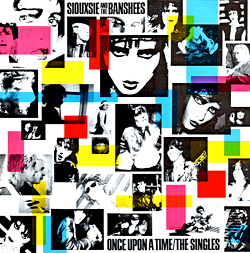
Once Upon a Time/The Singles is Siouxsie and the Banshees's 1981 compilation album featuring the band's UK single releases to date. The album featured several songs that had been released as singles yet had not appeared on any of the Banshees' four albums. Once Upon a Time/The Singles spent twenty six weeks in the UK albums chart. The sleeve was designed by Stylorouge.
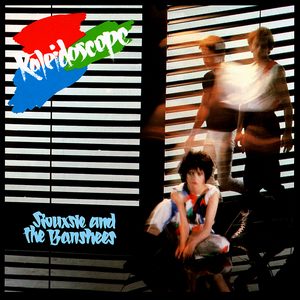
Kaleidoscope is the third studio album by British rock band Siouxsie and the Banshees, released on 1 August 1980 by Polydor Records. With the departure of John McKay and Kenny Morris and their replacement by two new musicians, Budgie on drums and John McGeoch on guitars, the band changed their musical direction and offered an album containing a wide variety of colors. "It was almost a different band", said Siouxsie.

Juju is the fourth studio album by British rock band Siouxsie and the Banshees. It was recorded at Surrey Sound studio with Nigel Gray as co-producer, and was released on 19 June 1981 by Polydor Records. Two singles were released from Juju: "Spellbound" and "Arabian Knights".

A Kiss in the Dreamhouse is the fifth studio album by British rock band Siouxsie and the Banshees, released on 5 November 1982 by Polydor Records. The record marked a change of musical direction, as the group used strings for the first time and experimented in the studio. Guitarist John McGeoch played more instruments, including recorder and piano. For Julian Marszalek of The Quietus, the release proved the Banshees to be "one of the great British psychedelic bands."

Hyæna is the sixth studio album by English rock band Siouxsie and the Banshees, released on 8 June 1984 by Polydor Records. The opening track, "Dazzle", featured strings played by musicians of the London Symphonic Orchestra (LSO), a 27-piece orchestra called the "Chandos Players"; it was scored from a tune that Siouxsie Sioux had composed on piano. Hyæna is the only studio album that guitarist Robert Smith of the Cure composed and recorded with Siouxsie and the Banshees.

Tinderbox is the seventh studio album by English rock band Siouxsie and the Banshees. It was released on 21 April 1986 by Wonderland and Polydor Records in the United Kingdom and by Geffen Records in the United States. It was the band's first full-length effort recorded with then-new guitarist John Valentine Carruthers; Carruthers had previously only added a few parts on the 1984 EP The Thorn. The first recording sessions for the album took place at Hansa by the Wall in Berlin in May 1985.
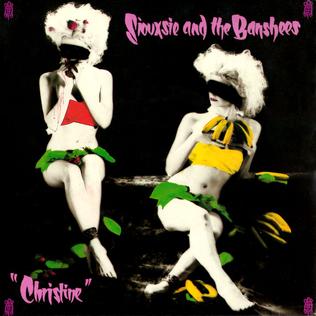
"Christine" is a song by English rock band Siouxsie and the Banshees, written by Siouxsie Sioux and Steven Severin. It was released in 1980 by Polydor as the second single from the then-unreleased third album, Kaleidoscope. The title of said album also comes from a lyric in "Christine".
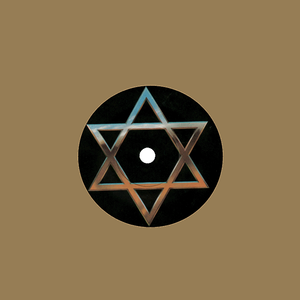
"Israel" is a song by British rock band Siouxsie and the Banshees, released as a stand-alone single in 1980 by Polydor Records.

"Spellbound" is a song by English rock band Siouxsie and the Banshees. The group wrote it and co-produced it with Nigel Gray. It was released in 1981 by record label Polydor as the first single from the band's fourth studio album, Juju.

"Slowdive" is a song by English post-punk band Siouxsie and the Banshees. It was released in 1982 by record label Polydor as the first single from the band's fifth studio album, A Kiss in the Dreamhouse.
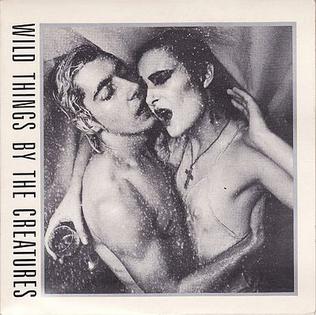
Wild Things is the first release by British duo the Creatures. It was issued on 25 September 1981 by Polydor Records as two 7" single records in a "double-album" style card cover, and is usually referred to as an EP. It peaked on the UK Singles Chart at No. 24, and the pair performed "Mad Eyed Screamer" on Top of the Pops. The EP was entirely remastered in 1997 and reissued as part of the A Bestiary Of CD compilation – which was also released on Spotify.
"House of Balloons / Glass Table Girls" is a song by the Canadian singer-songwriter the Weeknd, from his debut mixtape, House of Balloons (2011). The Weeknd wrote the song with its producers, Doc McKinney and Illangelo. It was included on his compilation album, Trilogy (2012). The song is a two-part track. Its first part, "House of Balloons", was built around a sample of the British band Siouxsie and the Banshees' 1980 single, "Happy House", and lyrically attempts to convince someone that everything is fine in his "happy house". Its second part, "Glass Table Girls", replaces the sample with a more darker beat, and discusses lyrical themes of drugs and sex.
"Red Light" is a song by rock band Siouxsie and the Banshees. It is the ninth track from their 1980 album Kaleidoscope. It was co-produced with Nigel Gray.

















